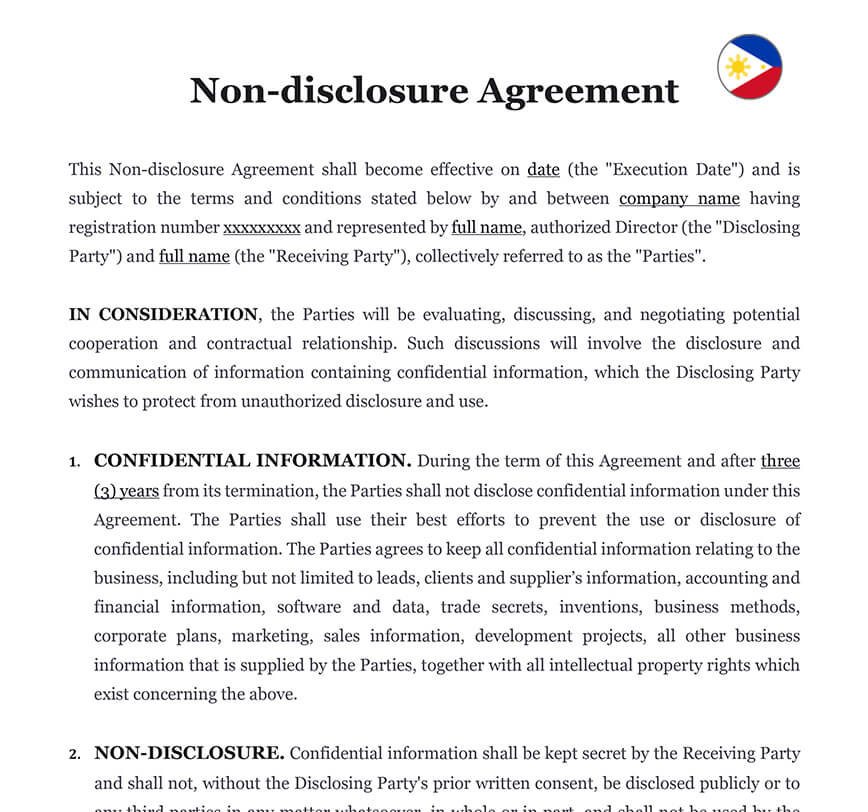Ready to use legal template
Drafted by experienced lawyers
Compliant with Filipino law
Ready to use legal template
Drafted by lawyers
Compliant with Filipino law
Home › Business contracts › Non-disclosure agreement (NDA)
Learn more about Non-disclosure agreement (NDA)
A Non-Disclosure Agreement (NDA) is a legally binding contract that protects confidential information shared between parties. It ensures that sensitive business details such as trade secrets, financial data, client lists, and proprietary strategies remain private and secure. In the Philippines, an NDA is essential for businesses, freelancers, startups, and investors to safeguard their intellectual property and prevent unauthorized disclosure. Without a properly drafted NDA, you risk exposure to business leaks, financial loss, and competitive disadvantage. Download our professionally crafted NDA, fully editable in Word format and tailored for use in the Philippines to protect your business interests and maintain confidentiality in all your agreements.
Table of contents
-
How is a confidentiality agreement used in the Philippines?
-
How to draft a legally binding Non-Disclosure Agreement?
-
The importance of confidentiality clauses in NDA?
-
Common mistakes to avoid when creating a Non-Disclosure Agreement
-
How to enforce an NDA in the Philippines court system?
-
Business NDA compared with an Employee Confidentiality Agreement
How is a confidentiality agreement used in the Philippines?
1. A contract governed with the law the Republic of the Philippines
A confidentiality agreement, also known as a non-disclosure agreement (NDA), is a legally binding contract that requires expert guidance. In the Philippines, a confidentiality agreement is typically used to protect sensitive information such as trade secrets, business plans and proprietary information.
It is important to note that in the Philippines, confidentiality agreements are governed by the Civil Code, the Intellectual Property Code and the Electronic Commerce Act.
2. The importance of an effective and enforceable agreement
It is advisable to consult an attorney before entering into a confidentiality agreement to ensure that the terms of the agreement are legally enforceable and that the rights of both parties are protected.
In the Philippines, this document must be drafted scrupulously to be admissible in court.
At Themis Partner you have the opportunity to get in touch with an expert legal advisor so you can ask questions about your situation and avoid future conflicts.
How to draft a legally binding Non-Disclosure Agreement?
| ➤ The parties: Identify the parties involved in the agreement, including their full names and addresses. Include a clause that establishes that the agreement may be executed in counterparts, each of which will be deemed an original. |
| ➤ The period: Establish the period of time during which the agreement will be in effect. |
| ➤ Specific clauses: The duration of the non-disclosure obligation or Include a clause that prohibits the recipient from disclosing the confidential information to any third parties without the express written consent of the disclosing party. |




